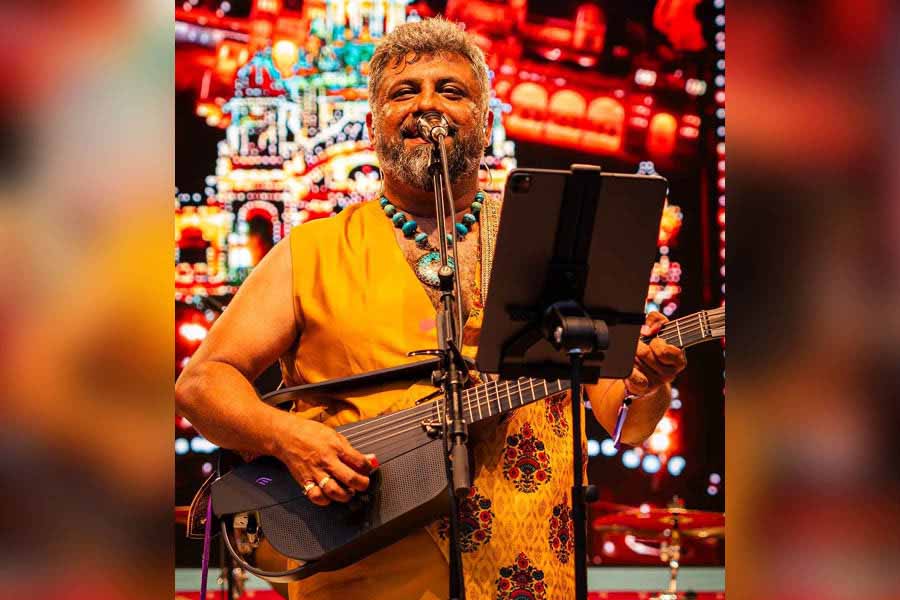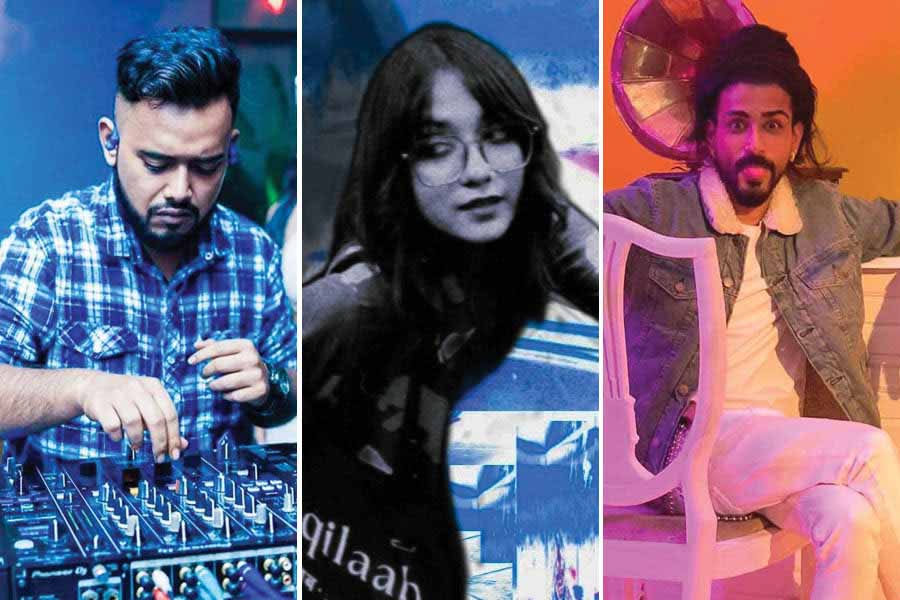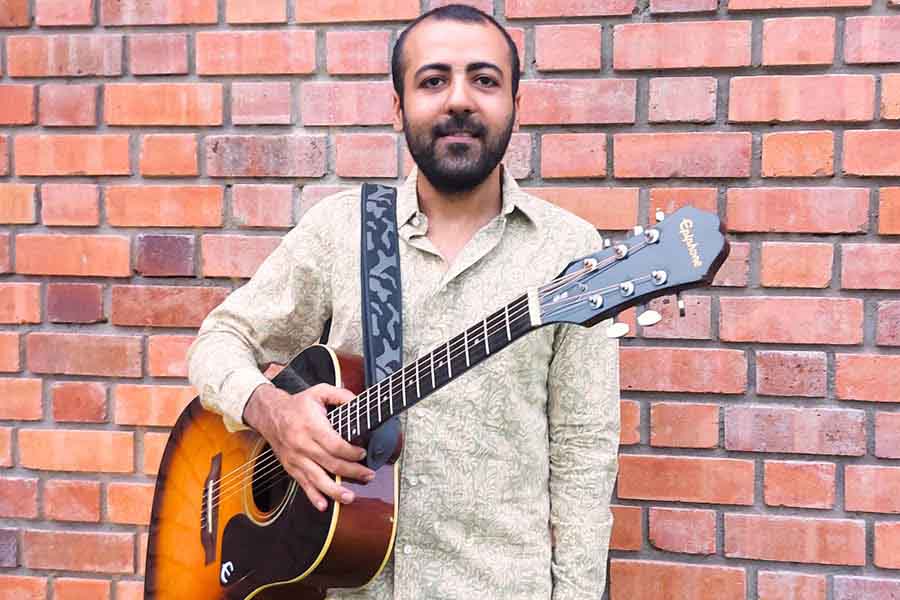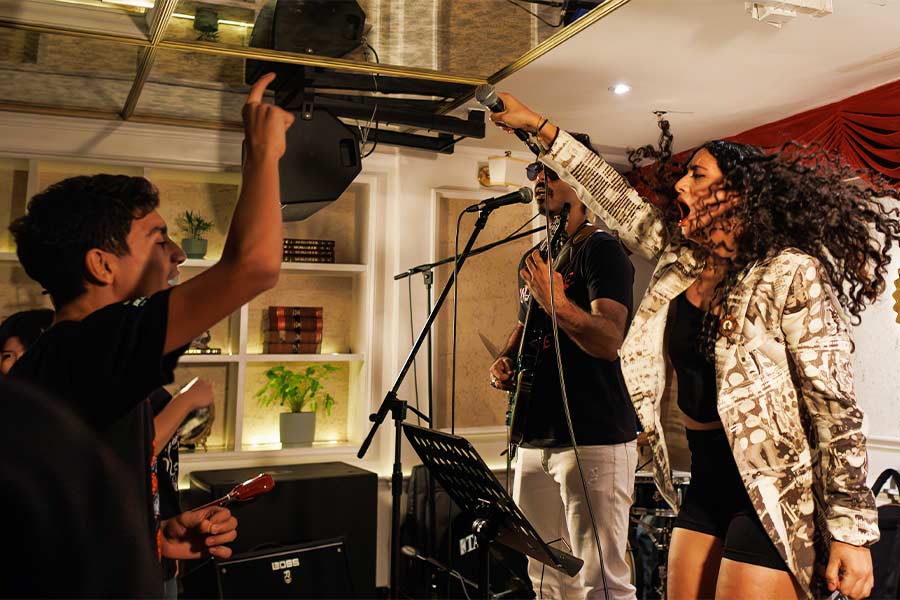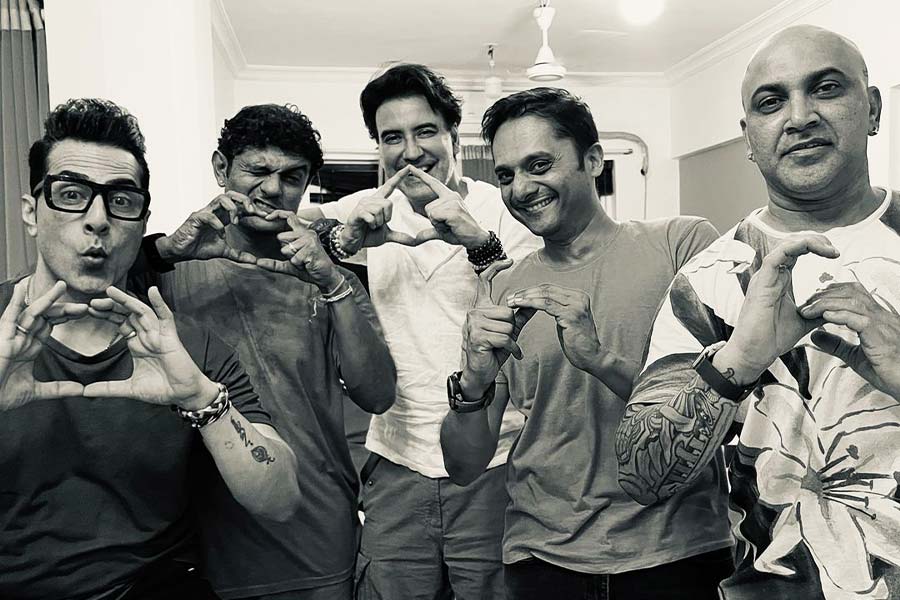From the streets of Mysore to Windsor Castle, Raghu Dixit has spent over two decades captivating global audiences with his infectious energy and heartfelt music. Leading The Raghu Dixit Project, he has pioneered a unique blend of Indian folk and contemporary sounds, proudly singing in Kannada and redefining what it means to be an independent artiste in India.
His dedication took the band to the Paris Olympics 2024 opening performance as part of their UK, Ireland, and Europe tour, which wrapped up in early August, and the Cannes Film Festival in 2022. After some well-deserved rest, Raghu shares with My Kolkata the highs and lows of touring as an indie band.
Edited excerpts follow.
My Kolkata: Performing at the Paris Olympics 2024 was a major milestone. How did it feel to be one of the first independent Indian acts to get this opportunity?
Raghu Dixit: It has been an absolute privilege that we got to represent India sharing our cultural poetry, stories, mythology, philosophies and spirituality through our music. At the same time, we are not only providing entertainment but also keeping the audience engaged — all while celebrating Indian athletes and their efforts.
You mentioned in an interview that it’s easy to bring Bollywood acts to such platforms, but your performance showcased India’s diverse music and stories. How important was it to represent Indian culture beyond Bollywood on a global stage?
Unfortunately, Indian music in the Western world is mostly limited to Bollywood, Punjabi, and classical genres, largely due to radio promotion and the international reach of these styles. The independent music scene remains largely unexplored outside India, with folk representation abroad mainly from Rajasthan, with rare exceptions like Baul music. For an independent band, getting a major platform to perform is a significant opportunity. Bollywood, as the dominant force, often overshadows other genres, making it challenging for them to stand out.
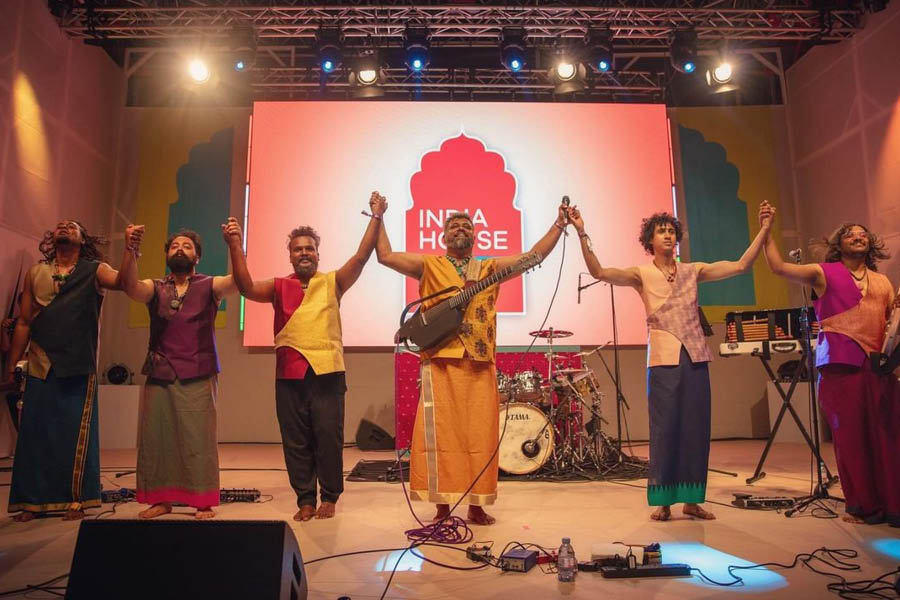
The Raghu Dixit Project: (L-R) Naresh Nathan on bass, Akshay Ganesh on violin, Joe Jacob on drums, Raghu Dixit on lead vocals and string instruments, Goutham Hebbar on flute and Sanjay Kumar on the gui
You previously performed at the Cannes Film Festival (2022), where there was also a separate India Pavilion for the first time. How did you feel about India’s increasing recognition in global cultural events?
It is a great statement to make. Indian filmmakers got an opportunity to present their work with industry professionals around the world. Business deals were being cracked with actors and actresses being introduced to foreign directors and producers. The fact that there is now space for Indian talent to be showcased and the amount of interest shown by other countries speaks volumes about how far we have come from where we used to be.
What kind of music and poetry did you present at the Paris Olympics 2024?
We presented a bit of everything. We presented the traditional Karnataka poetry that we are known for through our music, songs written by 19th-century saint poet Santa Shishunala Sharifa and also by pre-Independence era poet Dattatreya Ramachandra Bendre. We also performed most of our Hindi songs from our three albums, including our latest Shakkar. We also included some movie hits like Train Song from Gully Boy and some from popular Kannada films.
How did you blend traditional elements with contemporary music to appeal to a diverse audience?
At the Olympics, the presence of a sizable Kannada audience made it impossible to leave out Kannada tunes, even though they weren’t on the setlist. Performing this way comes naturally to me, having grown up in an environment rich in both traditional and contemporary music. Raised in an orthodox family learning Bharatanatyam, I was also exposed to Iron Maiden, Guns N’ Roses, and Metallica in college. Later, the Internet and moving to Bangalore broadened my exposure to world music, allowing me to blend Afro-Cuban rhythms, Irish folk, and Western rock seamlessly into my performances.
How did you connect with the audience, many of whom may have been unfamiliar with Indian folk music?
Most of the audience was unaware of my band and music. But I make it a point to speak and explain each song. I get into the philosophy of the songs, especially the ones written by our saints. Once I explain, it is easier to get into the mood; generally our performances are upbeat and danceable. Performing in 30-plus countries it is obvious to us that music has no language and we have always broken that barrier. All humans, no matter how different we are, our emotions are all the same.
Given the increasing global recognition of Indian culture, where do you see the future of Indian independent music on international platforms?
Indian independent music needs to be heard around the world but it is difficult to project it. Independent bands struggle to make a living within India itself, let alone save money to go abroad, perform and slowly grow their profile over 10 years. We have yet to break even during our UK and US tours. It’s a very hand-to-mouth situation and in the initial years, I lost money every year. One has to be prepared to invest in the future for their progress. It has to be a collective movement by many bands so one can lead the way and others can follow.
Looking ahead, what are your aspirations for The Raghu Dixit Project? Are there any other international events or projects in the pipeline?
The immediate plan is to rest, as our tour was very long. After that, we will embark on our India tour where we will launch Shakkar — it has only been launched in London so far. By the end of October, we have a US tour lined up. We also have one-off music festivals in Europe, Canada and the US before returning to India for the peak season. We are also working on some new albums inspired by historical stories and spirituality.
